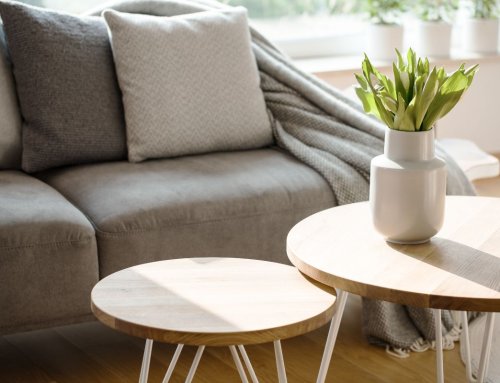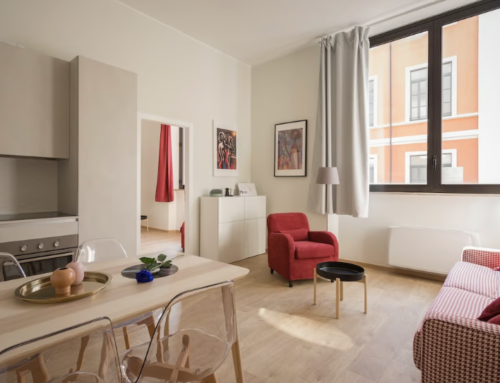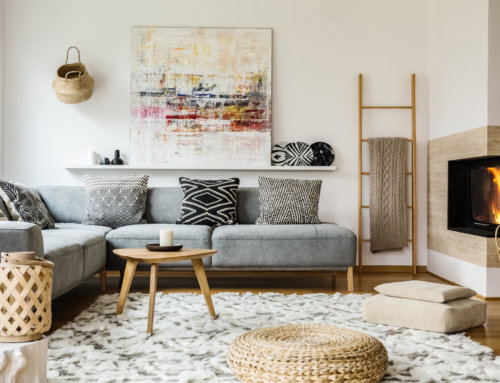
A sober living home provides people with a safe space to recover from drug or alcohol addiction. A study published in the National Library of Medicine found that people living in sober houses had an average stay of 245 days.
Whether you’re looking to start your own sober home or you want to live in one, it’s important to know what to look for to ensure a positive experience.
Read on to discover a list of five qualities of the best sober living homes to help you determine what the best type of environment is for you.
1. Providing a Strong Support System
Staying sober is a much more difficult task without the right form of support readily available. Not only should sober living homes give people a safe place to stay, but they should also play a role in providing residents with a strong support network.
The National Institute on Substance Abuse (NIDA) found that being around peers in recovery who can share their experiences is the best way to get and stay sober. These peers not only share what they’re going through, but they also offer a sense of true understanding for those who are struggling.
The key to providing a good support system is the ability to help people establish wellness and manage their symptoms. Ultimately, the goal is to help each person achieve and maintain their sobriety long into the future.
Giving access to peer recovery groups like AA, NA, and 12-step groups is vital. These groups help people maneuver the stages of getting sober. It also helps residents to live sober long after rehab is complete.
Having a sober coach readily available can also make struggling with the challenges of getting and staying sober much easier. Strong support often leads to much more successful outcomes.
2. The Best Sober Living Homes Require Accountability
If someone wants to maintain their sobriety long-term, they need to be held accountable. The best sober living homes hold each resident accountable and may perform interventions if necessary.
Examples of accountability include mandating regular drug and/or alcohol testing and holding weekly house meetings with peers. Residents should also be required to remain in their chosen programs for the duration of their stay.
All members in sober homes should also maintain communication with a sober coach or another mentor. With the right level of accountability, permanent sober living is possible.
Make sure that the sober home understands that individuals in recovery have complex needs. Being held accountable is just one crucial part of the puzzle.
3. Help with Jobs and Education
Sober homes should do more than just provide support and a place to live. For many addicts, job loss and lack of education come with the other hardships of addiction.
The best sober living homes should provide residents with resources that will help them find gainful employment or expand their education. This will give people the tools they need to re-enter society and live a happy and successful life.
Sober living homes can help residents learn how to fill out an application, write a resume, or participate in job interviews. They can also help people with the resources required to enroll in college, get a GED, or participate in remote learning opportunities.
Providing people with the skills they need to be productive is vital to the recovery process. Make sure that your sober home offers these opportunities.
It’s important that you’re able to provide these opportunities to others if you’re planning to start your own sober living home. This is a great way to give people a sense of purpose and to ensure that they live a happy and fulfilling life.
4. Ensuring a Safe Environment
The best sober living homes should always make safety a number one priority. Not only do people in recovery need to be safe, but so do counselors, visitors, and family members.
Onsite support staff should be available to enforce the rules and make sure that everyone is safe at all times. Resident rules and regulations should always be strictly enforced with no exceptions.
Every client should be fully screened and vetted before being admitted to a sober living home. Providing people with a safe, secure place to live is one of the building blocks toward recovery and sobriety.
5. Cultural Awareness
Some of the best sober houses are culturally aware and offer support for people from all races, religions, and backgrounds. Population-specific sober homes for LGTBQ, men or women only, and working professionals can help people feel respected and understood.
Make sure that you choose a diverse, compassionate sober living home that’s sensitive to your unique needs or beliefs. This is the best way to ensure that you’re getting the level of support and accountability you can trust. It also ensures that you’re living with like-minded individuals who understand your struggles.
It’s typically much easier for people in recovery to participate in peer groups with those they identify with. Make sure that the sober living home you choose understands your needs and can relate to your community.
Choose Your Sober Home Today
Whether you’re interested in starting your own sober home or you’re looking for the best sober living homes near you, keep these factors in mind. With the right resources, accountability, and understanding, recovering from addiction and staying sober is possible.
If you need some help or you’re looking for more information about sober living houses, be sure to explore our resources section to find out more today.









